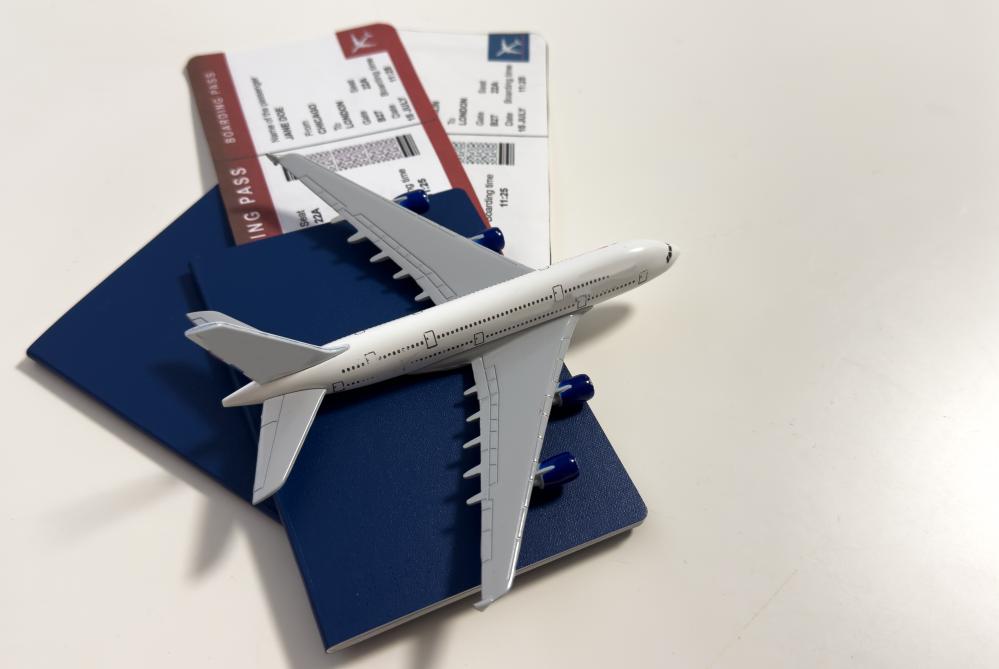
Navigating the World of Plane Ticket Price Trackers
As a travel expert with over two decades of experience working with Tickets That Cheap, I’ve seen firsthand how critical it is to identify the best time to book flights. The introduction of plane ticket price trackers has been a game changer, offering travelers predictive insights that can lead to significant savings. These tools analyze a multitude of variables, helping you determine the optimal moment to snag those affordable tickets.
But how does a plane ticket price tracker manage to forecast these fluctuations? Well, the answer lies in the abundance of data. By examining historical fare trends, current demand, airline strategies, and even seasonality, these trackers provide predictions that can sometimes surprise even the most seasoned traveler.
The Importance of a Plane Ticket Price Tracker
A plane ticket price tracker serves as a valuable tool in the traveler’s arsenal, particularly when planning trips on a budget. In a market heavily influenced by supply-demand dynamics, these trackers help even the odds by giving consumers a peek into possible future fare changes.
From my extensive career in travel, it’s evident that relying solely on intuition often leads to missed opportunities for savings. With these advanced technologies, travelers can capitalize on insights previously unavailable to the average consumer. This is particularly advantageous for those who plan trips months in advance or during peak vacation seasons.
How Do Plane Ticket Price Trackers Really Work?
Ever wondered how a plane ticket price tracker is able to predict future fares? Here’s a sneak peek into their complex workings:
- Data Collection: Trackers pull data from a variety of sources, including historical fare databases, current ticket prices across airlines, and seasonal patterns.
- Algorithmic Analysis: Advanced algorithms analyze this information to discern patterns and trends.
- Predictive Modeling: Using these insights, trackers forecast future pricing movements, offering guidance on the best times to purchase tickets.
- Alerts and Notifications: Users receive notifications or alerts about significant price changes or ideal booking times, allowing them to act promptly.
Integrating a plane ticket price tracker is an effective way to ensure you’re not paying more than necessary for your flight.
What to Look for in a Plane Ticket Price Tracker?
When selecting a plane ticket price tracker to rely on, several factors should be taken into account to ensure it meets your needs:
- User Interface: A simple, intuitive interface can make tracking easier and more efficient.
- Customization Options: The ability to set parameters and alerts tailored to your travel plans is crucial.
- Data Accuracy: Ensure the tracker provides recent and accurate data to prevent any booking mishaps.
- Comprehensive Coverage: Opt for trackers that cover a wide range of airlines and routes.
What Is a Common Concern About Using a Plane Ticket Price Tracker?
A frequent concern among new users of plane ticket price trackers is accuracy. Given the unpredictable nature of airfare fluctuations, how reliable are these predictions?
While no tracker can guarantee absolute accuracy, most offer a confidence level based on historical data trends. This should serve not just as a guide but as an added layer of assurance when planning your travel budget. From my experience with Tickets That Cheap, leveraging these predictions often results in substantial savings and more informed decision-making.
Strategies for Maximizing Savings with a Plane Ticket Price Tracker
To make the most out of a plane ticket price tracker, consider the following strategies:
- Set alerts for multiple routes if you have flexible travel plans to adapt based on price shifts.
- Use trackers consistently over time to familiarize yourself with price patterns specific to your preferred destinations, which enhances your decision-making process.
- Combine alerts from trackers with loyalty or rewards programs to maximize discounts and benefits.
These tactics, gathered from years of experience in the travel industry, can significantly enhance the value you receive when planning your next trip. Remember, the ultimate goal is not only to save money but to pave the way for more travel opportunities.

How effective are Plane Ticket Price Trackers in predicting fare changes?
Plane ticket price trackers are generally effective at predicting fare changes by analyzing historical data and current trends. However, due to the inherently volatile nature of airfare pricing, absolute accuracy isn’t always guaranteed. For instance, consider how fuel prices or sudden surges in demand can cause unexpected price shifts. Most trackers provide a confidence level, which acts as a helpful guide. At Tickets That Cheap, we often find these predictions leading to impressive savings for our clients, allowing them to travel more frequently without overspending. Have you ever experienced a surprising fare drop or hike? Share your stories in the comments!
What are the key features to consider when choosing a Plane Ticket Price Tracker?
When selecting a tracker, you’ll want to consider several features. An intuitive user interface makes it easier to navigate the tool, while customization options allow you to set specific parameters tailored to your travel plans. Data accuracy is crucial–imagine missing out on savings because of outdated information! Comprehensive coverage ensures the tracker monitors a wide range of airlines and routes. At Tickets That Cheap, we strive to incorporate these features to enhance our customers’ booking experiences. What feature do you value most in a price tracker?
Can Plane Ticket Price Trackers help with last-minute bookings?
Yes, they can be particularly beneficial for last-minute bookings by alerting you to any sudden fare drops that might occur. While it’s generally advantageous to book in advance, these trackers can still offer opportunities for savings even when you’re in a time crunch. Imagine being alerted to a price drop just before a weekend getaway and securing a budget-friendly flight. At Tickets That Cheap, our 24/7 booking access supports both planners and impulsive adventurers. Have you ever booked a last-minute bargain thanks to a price alert?
How can travelers maximize savings using Plane Ticket Price Trackers?
To maximize savings, set alerts for multiple routes, particularly if your travel plans have some flexibility. This way, you can pivot to different destinations when prices shift. Consistent use of trackers allows you to recognize patterns, enabling smarter booking decisions. Integrating these alerts with loyalty or rewards programs can also enhance discounts. At Tickets That Cheap, we often suggest combining promotional offers with these strategies for the best results. Do you have a favorite reward program that complements price alerts?
Are Plane Ticket Price Trackers reliable for planning vacations in peak seasons?
Plane ticket price trackers are valuable tools for planning vacations, even during peak season. These trackers analyze seasonal trends and historical fare data to offer predictions that can guide your booking decisions. Although peak seasons are challenging due to increased demand, trackers can still pinpoint favorable moments to book your flights. At Tickets That Cheap, we advise using these trackers alongside insights from our experienced travel experts to optimize savings. Have you successfully used a price tracker for a peak-season trip before?
How do Plane Ticket Price Trackers gather and analyze data?
Plane ticket price trackers compile data from a variety of sources, including historical fare databases and real-time airline pricing. Complex algorithms then analyze these datasets to identify trends and predict future price movements. This process involves examining factors like demand, seasonality, and even airline promotional strategies. At Tickets That Cheap, we leverage these insights to offer our customers the most competitive fares. If you’re interested in the technical side, you might explore platforms like Google Flights or AirHint.
Resources
- Department of Transportation – The official website of the U.S. Department of Transportation, providing information on air travel regulations, safety, and consumer rights.
- Federal Aviation Administration (FAA) – The primary regulatory agency for aviation in the United States, ensuring the safety and efficiency of civil aviation.
- USA.gov Travel – A comprehensive resource for travelers, offering information on passports, visas, travel alerts, and more.
- Bureau of Transportation Statistics – A source of transportation data and statistics, including information on airfares, on-time performance, and airline financials.















